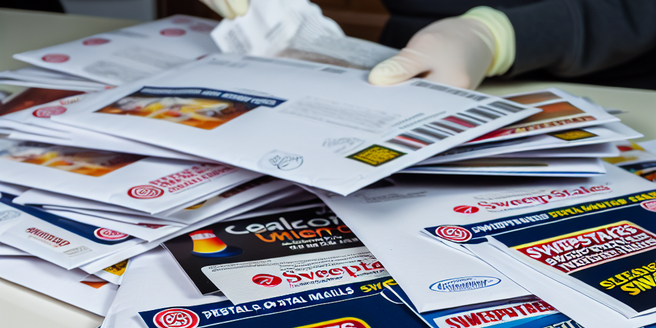Spotting And Avoiding Sweepstakes Scams

Understanding What Sweepstakes Scams Are
Sweepstakes scams are fraudulent schemes wherein fraudsters trick individuals into believing they’ve won a prize or lottery, but in order to claim it, they must pay a fee or provide personal details. These scams often employ sophisticated tactics, creating believable communications and using genuine-seeming contact details or references to reputable companies. Scammers might also display an impressive knowledge of their target’s personal information, further enhancing their credibility. Typically, the goal is to gain access to victims’ financial accounts or to engage in identity theft. Recognizing these scams can be challenging, as they take many forms and may appear as phone calls, emails, or postal mailings.
Recognizing Common Traits of Sweepstakes Scams
Common traits of such scams include unsolicited communication about the win, demands for upfront fees or payments (often disguised as taxes or delivery fees), and requests for detailed personal or financial information. Often, these frauds are carried out via email, phone calls, or text messages, catching the unsuspecting individual off guard. The scammers will use counterfeit documents or forged official badges to establish false credibility. These scams may pressure victims to act quickly to claim the prize, or use other tactics to keep the conversation going and distract victims from their doubts. They also often employ high levels of secrecy, insisting that the entrant must not tell others about the win.
Telltale Signs of Sweepstakes Fraud
Telltale signs of sweepstakes fraud include grammar and spelling errors in communications, untraceable contact information, and unrealistic demands or requirements. On top of these red flags, another common indicator of a fraudulent sweepstake is a sense of undue urgency, pushing you to act quickly or miss out. It’s crucial to remember that legitimate companies conduct due diligence and maintain transparency in their processes. If a sweepstake does not have clear rules or the organization cannot be traced, it is likely a scam. Genuine sweepstakes also do not charge fees to enter or claim prizes, and they do not typically require winners to provide sensitive personal information such as social security numbers or banking details.
Avoiding Sweepstakes Scams: Essential Tips and Strategies
To avoid falling victim to such scams, individuals should be wary of unsolicited communications about winnings, should never pay a fee to claim a prize, and should always verify the legitimacy of the organization before providing any details. A good practice can be to conduct an independent search of the company’s name with the word “scam” attached, to see if any suspicious results come up. It’s also pertinent to keep in mind that data privacy is essential and sharing personal information could lead to identity theft. It is useful to remember that legitimate companies will usually use traditional mediums for their sweepstakes and will clearly state that no purchase or payment is necessary to enter.
Protecting Yourself From Becoming a Victim
To ensure digital safety, it’s highly recommended to install trusted security software on all devices, such as computers, smartphones, and tablets. Regularly improving passwords helps to significantly reduce chances of being hacked. Always monitor financial accounts for unusual activities, enabled by regular checks. Be cautious sharing sensitive information over phone calls or emails, particularly if they’re unsolicited. Prioritize educating yourself about cyber threats and strategies to counter them, including scams and phishing strategies. Attending workshops, webinars, or seminars that deal with these issues will equip one with necessary skills, with a well-informed defense being the best offense.
What to Do If You’ve Been Scammed
In the unfortunate event of falling victim to a scam, report the incident to your local authorities and to your financial bank if your financial information has been compromised. Taking immediate steps can limit your exposure and potentially help track down the scammer. Also, it is wise to update your personal passwords and security information to prevent further exploitation. Contact your local consumer protection agency and consider reporting the scam to the Federal Trade Commission in the U.S or to similar watchdogs in other countries. Above all, do not blame yourself and remember to share this experience to help others avoid similar situations.